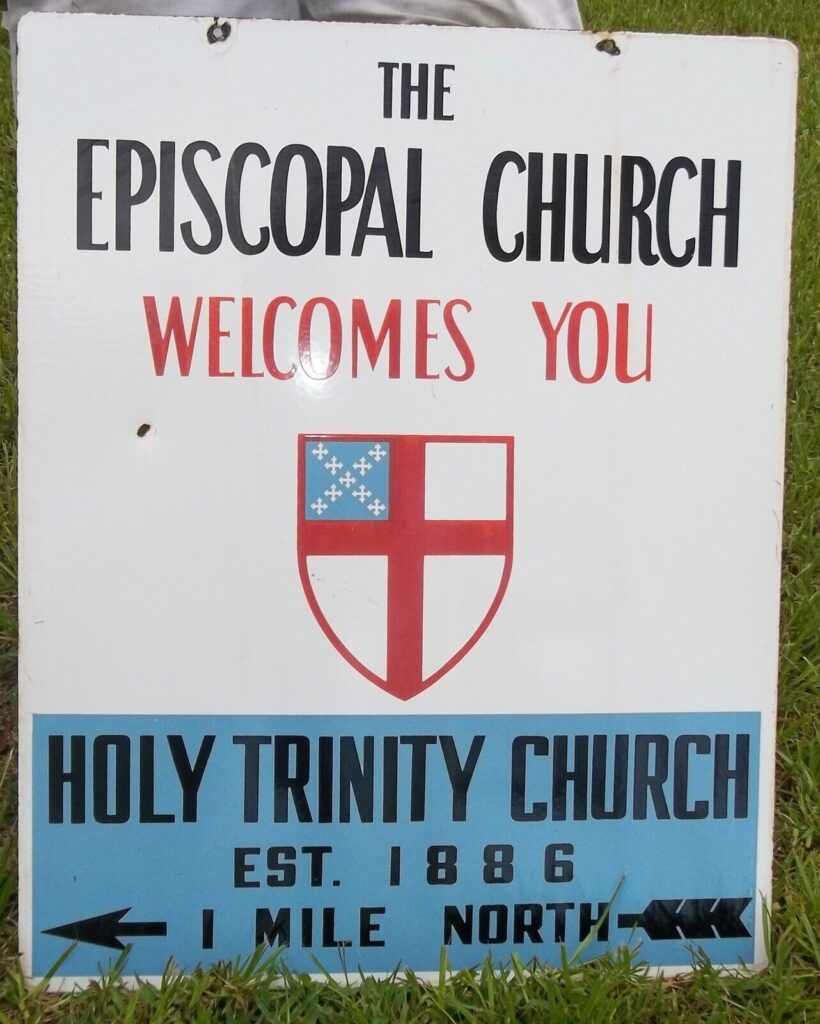(E)pistle: (Updated) The Episcopal Church Welcomes You–Really?

Update (8 am Pacific, October 18): We have heard loud and clear the pain and confusion this post has caused. We know that was not Bishop Kirk’s intention, but we know intention and impact are different. We apologize in particular to LGBTQ+ members of the CDSP community. A more detailed response will follow.
We are all familiar with the Episcopal church’s one successful foray into advertising, those little, “The Episcopal Church Welcomes You” signs found in so many places.
But right now it would be a good time to ask ourselves, is this really true?
In the past generation our church has done a commendable job of opening its doors to those often not welcomed in many Christian denominations, members of the LGBTQ+ community, minority racial and ethnic groups, people with disabilities, and other marginalized groups. We rightly pride ourselves on being a “big tent.” But there is one group which often does not feel welcome in our pews–those who identify as conservatives, both theologically, culturally, and politically.
I am certainly not saying that we should turn our backs on the values of acceptance, justice, and inclusion, which are at the core of our faith. But within that framework we also need to provide a safe and loving environment for those folks who are interested in broadening their own faith. After all, Christ calls us to be a reconciling community.
Last year, a group called the Public Religion Research Institute made the surprising discovery that “mainline” Christians (such as Episcopalians) had actually gained in percentage numbers against conservative or evangelical Christians.*
This is due to many factors, one being that many such Christians cannot stomach the political views of their hard-right brethren, and are looking for a kinder, more compassionate faith.
Can we provide a welcoming place for them?
This will be a challenge for our church in the years to come, and a question that will be faced in our seminaries. As one seminary prof recently told me. “Many of my students used to be former Roman Catholics, now they are former Southern Baptists.”
Here at CDSP, we strive to create a learning atmosphere in which all beliefs are respected while all truths are upheld. That can be a difficult balance to maintain, but an important one for our church’s future.
*See for example the analysis in The New Yorker https://www.newyorker.com/news/daily-comment/the-unlikely-rebound-of-mainline-protestantismr. And note that even though the percentage of mainline Christians has increased, the number of people who identify with any religion continues to fall.
Kirk

